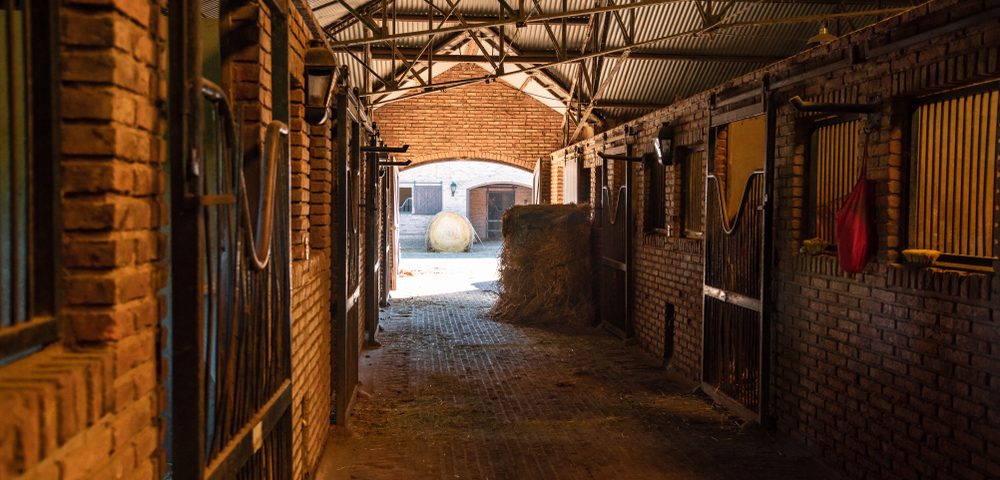Horsin’ Around: Oli Students Learn the Care and Keeping of Horses
Horsin’ Around: Oli Students Learn the Care and Keeping of Horses








In the last quarter of the 2018-2018 school year, four Oli students fulfilled stewardship curriculum by learning how to maintain a stable and care for horses.
This past spring, students had the opportunity to enroll in a unique course offering, “Horsin’ Around,” pioneered by Oliverian art teacher Bessa Axelrod. The inspiration for the class arose from a love for equines shared by teachers and teenagers alike. “They’re such amazing animals to hang out with and work with,” Bessa said, “and the course allowed me to get familiar with a new cohort of students who might not know me through art classes.”
And Bessa wasn’t the only one making new friends. In fact, she designed “Horsin’ Around” to encourage students to branch out by fostering new connections and partaking in novel experiences. As a stewardship class, the course contributed to pillar curriculum intended to help students explore their relationship with their community and the natural world. For this reason, the focus of the course was not on riding skills but rather on learning to care for horses and understanding herd psychology — in other words, taking responsibility for another complex, feeling being.
In this respect, “Horsin’ Around” was a smashing success, both at teaching stewardship and facilitating fun. “The students got to see firsthand what it’s like to be around these very big, powerful animals, who trust us — these small, insignificant people — to meet their needs in different ways,” Bessa said. “It was lovely to watch students care for the horses, and to see their faces just light up when we got to the barn.”
Becoming Good Stewards
To learn about the care and keeping of their equine pals, four Oli students traveled to the barn at River House Farm and Innerquest Equine Center in Piermont, New Hampshire three times a week. Oli has a personal connection to this special place — Greg Vogel founded the family-owned and -operated horse farm, and he helped coordinate the course before returning to our school as Executive Director of Program and Culture this summer.
Now serving as barn manager and instructor, Greg’s daughter Maren steered Oli students through their horse stewardship training. As an equestrian and an instructor for the Mountain Valley Treatment Center equine therapy program, Maren has an extensive background with horses. “She works with a wide range of students who all face different challenges in how they think and behave, and I can’t say enough about her abilities,” Bessa said. “She is so knowledgeable and was a wonderful teacher to our teenagers.”
Together, Maren and Bessa guided students through the course’s two core elements: groundskeeping and caretaking. On Tuesday mornings, students spent two hours mucking out stalls — learning how to clean the stable, put fresh bedding in the stalls, load hay in the barn, and feed the horses. “We were getting down and dirty in the horse barn,” Bessa explained. “Tuesday mornings were two hours of really hard work, and I was impressed with students’ ability and willingness to jump right in.”
Wednesday and Friday lessons were less labor-intensive and featured more hands-on interaction with the horses themselves. Students brought horses in from the pasture, groomed them, and led them through the indoor arena using groundwork techniques taught in class. Additionally, they learned about equine anatomy and psychology, gaining an understanding of a horse’s body and brain — what a horse can do, how it thinks, and why it does what it does.
Reaping the Rewards
The benefits of the class were twofold. Bessa notes that, on a surface level, “the privilege of handling the horses on Wednesdays and Fridays was a reward for doing the difficult work on Tuesdays.”
In more figurative terms, however, the class paid dividends in personal growth. Often, “Horsin’ Around” surpassed even Bessa’s expectations as she watched Oli kids eagerly lean into stewardship. “I see stewardship as a really important way for teenagers to step outside of themselves and find a way to serve the community at large or the world around them,” Bessa said. “For the duration of this course, I saw moments on a daily basis where our students left their comfort zone or engaged more fully to be able to participate with these animals.”
The real takeaway? Students developed a rich relationship with animals by investing time and effort in the act of caretaking, by making the choice to pick up their pitchforks, shovel muck with a smile, and do something for someone besides themselves. In both a literal and metaphorical sense, then, the payoff comes after first “doing the difficult work.”
In this way, the course attests to the magic that happens when you try something new, become aware of profound simple pleasures, and open up to the joy of sharing the world with other sensitive, intelligent living things. “It was very fun to watch our students, who are quite sophisticated, get to know these animals for the first time and be delighted just by putting a halter on their horse or feeding it a treat.” Sounds like it was a treat for all involved!
